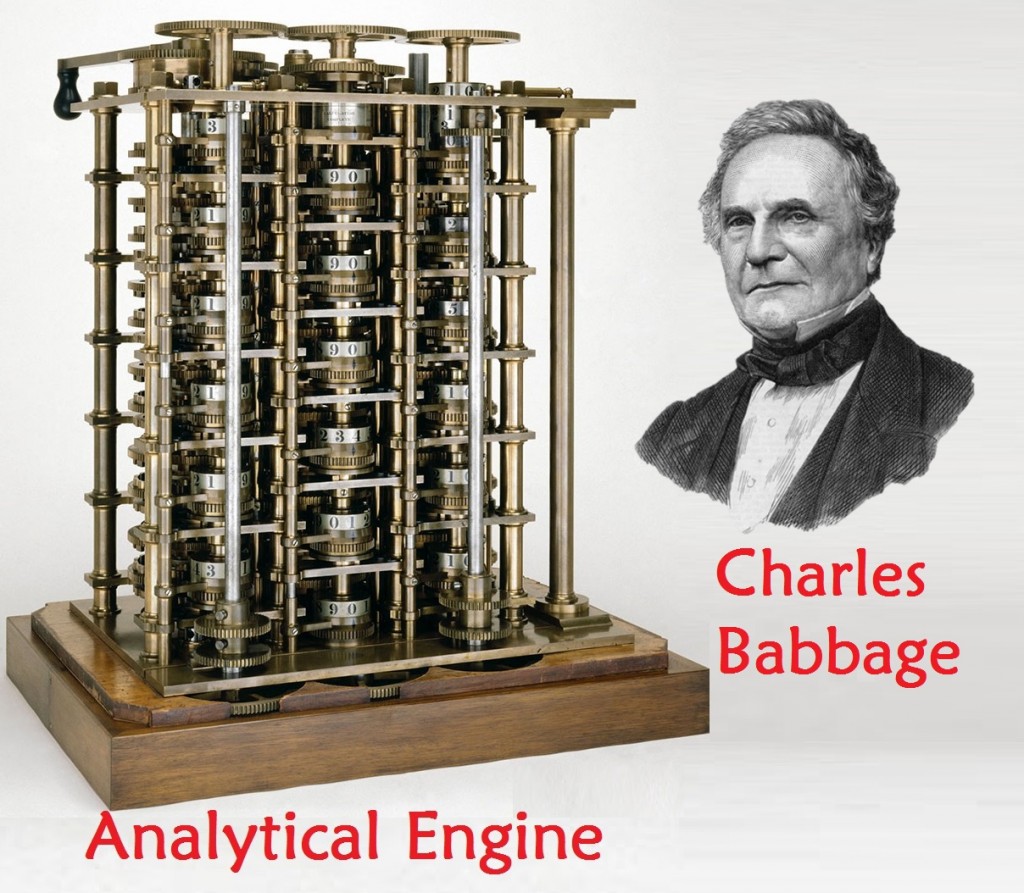Father of Computer:
There are many people who had spent their life for making new inventions in the world of computing without which the world would be crippled, out of these, Charles Babbage’s invention of analytical engine in 1837 with parts like ALU(Arithmetic Logic Unit), flow of control and basic memory, made him the father of computer. His thoughts were noble and innovative, but his economic conditions didn’t support his making. Unfortunately, he couldn’t get sponsors. This analytical engine served as the base for our modern computer.

However, after his demise, his younger son Henry Babbage made the first version of analytical engine in 1910 and the second version was done by the London Science Museum.
Later many refinements were done. However, inventions like the Turing machine (A hypothetical computing machine) by Alan Turing, Z series computers by Konrad Zuse, ABC (Atanasoff-Berry Computer) computer by John Vincent Atanasoff, Personal computer by Henry Edward Roberts made the world to take a great leap towards advancement.
List of Computer Scientists:
| Contribution | Year | Inventor | Specialty |
| Analytical engine(basic model) | 1883 | Charles Babbage | Operated mechanically |
| Analytical engine version 1. | 1991 | Henry Babbage | With I/P and O/P and processing systems. |
| Analytical engine version 2 | 1992 | London Science Museum | With i/p and o/p and processing systems. |
| Turing Machine | 1936 | Alan Turing | A hypothetical machine with predefined rules. |
| ABC computer(Atanasoff –berry computer) | 1937 | John Atanasoff | The digital computer using vacuum cubes. |
| Von Neumann architecture. | 1960 | John von Neumann | Single memory stored program architecture.(described how a program reproduce itself) |
| Altair 8800 (The first PC) | 1974 | Henry Edward Roberts | Memory board and interface board. |
Computers have made a home in businesses & corporates around for thousand years. The very first or one can say the earliest computer was like Abacus, the musical play instrument for kids, the series of beads that were arranged on several metal rods. Beads were arranged on the back as well as front side to operate on numbers. This was a very elementary kind of computers which we consider a musical play instrument or a toy for a child in the modern technology world. Our scientists & computer experts had a plan or an idea to involve electricity in the computers. They wanted to have a tough playground with electricity & electronics. Indeed. Our mind reminds us that a computer is an electronic gadget with a screen, mouse, keyboard & a CPU which works through electricity at homes, offices & several corporates.
The very first computer used a considerable amount of electricity that changed voltages into vacuum tubes. This conversion was made to operate the computer. Punch cards, as well as behemoths, were used to give instructions to the computer. These punch cards & behemoths required a space of several floors of the building. Only the Government & privileged universities were liable to make use of those behemoths & punch cards.
In the later 1960s, vacuum tube was replaced by the integrated circuit as well as a transistor. These transistors & integrated circuit helped greatly to save the power consumption & it also required a considerably small place. These were still very huge in size & only institutions have access to computing power. During the end of the 1960s decade, a microchip was discovered, which further helped engineers to reduce the size of the computers. During the 1970s & later parts, computers were used extensively for business & study purposes. The Personal Computer (PC) unit was born in the later 1970 stages since people used to have a computer at their place. Computers have now become very affordable & these are very much refined as well as efficient to use.
Leave a Reply